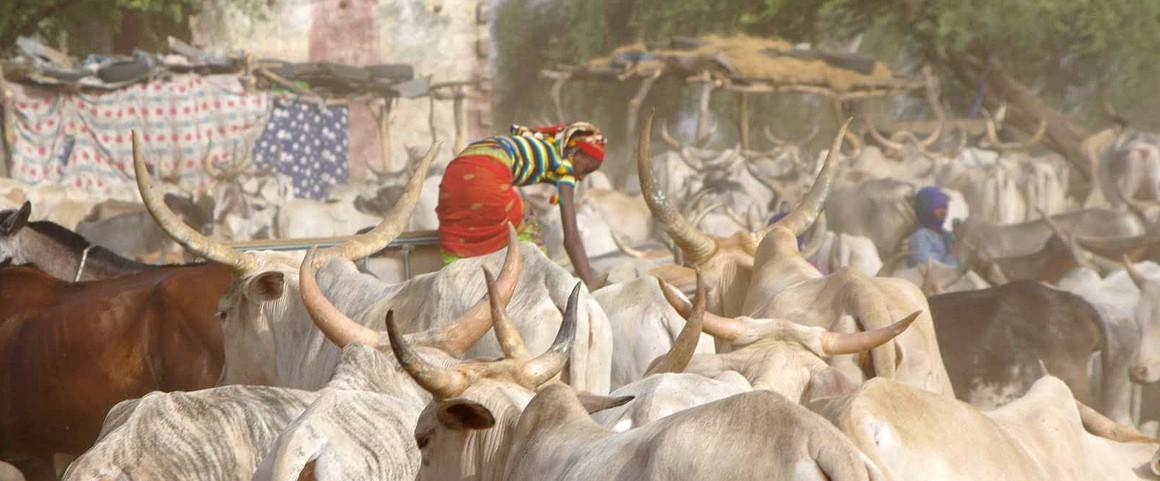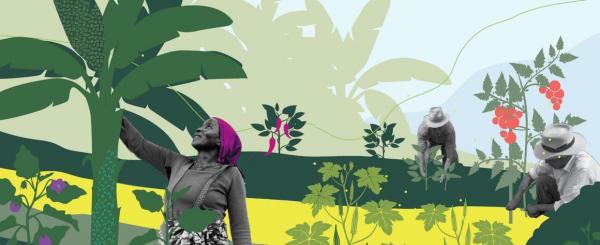Just out 20 January 2026
- Home
- CIRAD news
- News
- Pastoralism, crucial for dry regions
Pastoralism | Sidelined by public policy but crucial for dry regions

© S. Taugourdeau, Cirad
"Even just a few head of cattle constitute a vital capital for household livelihoods and food security", Véronique Alary, an agricultural economist with CIRAD and co-author of the latest issue of Perspective, observes. Livestock systems are a veritable "walking savings plan" for families in dry regions, allowing them to adapt to uncertainty, from climate variability to agricultural price fluctuations through soil degradation and unexpected expenses.
Mobile livestock systems, a sector with numerous advantages…
Mobile livestock systems – in other words pastoral and agropastoral systems in which either the livestock or both the livestock and the families concerned are mobile – "serve to make use of arid environments, where other agricultural activities are both complex and costly" says Denis Gautier, a geographer with CIRAD and another co-author of the issue.
… that are largely sidelined by public policy
However, while there is growing scientific proof of the actual and potential contribution of livestock systems to territorial development and ecosystem maintenance, the sector is still largely overlooked in public policies aimed at alleviating poverty. "This is down to the lack of reliable data collection systems in dry regions", says Véronique Alary, "and also to the fact that food security policies often prioritize calorie supply, primarily from cereals, over protein and fat supply from meat and milk". Moreover, as Denis Gautier points out, "sedentary farming systems have traditionally been better organized in institutional terms and more closely connected to the authorities than pastoral systems".
Holistic support rather than controls
The researchers regret the fact that current livestock support policies do not reflect the role livestock systems play in generating wealth. They are also concerned that policies regarding mobile livestock systems focus on controlling herds and pastoral societies, in the name of improving herd performance and crop-livestock integration. In their view, mobile livestock farming, which is a way of life and serves to broaden the range of socioeconomic activities in rural areas and to adapt to change, should be addressed more holistically. To this end, how could those aspects be coordinated and measured, to support livestock policymakers?
A multi-level decision support framework...
This is what the multi-level operational framework resulting from several years of research by CIRAD and its partners, set out to do. Soil and water quality and accessibility, seasonal cash flow, income from livestock in relation to basic annual expenses, etc. The framework contains seven types of development indicators and three dimensions – temporal, spatial and organizational. "It is not a step-by-step guide but a decision support tool, with a set of suggested indicators to be considered", Véronique Alary explains. "When tackling a given problem at a given time, for instance by subsidizing animal feed for a season in response to a shortage of cereals during a drought, it is vital to understand the medium- and long-term impact that will have on ecosystems and the livestock sector".
… that the authorities are beginning to take on board
This holistic approach, focusing on long-term impacts, is gaining support at livestock ministries in the Sahel. "In Mauritania, Senegal and the CILSS countries in general, CIRAD, FAO, the World Bank and national and international research centres are being asked to support the drafting of integrated livestock management strategies", Véronique Alary observes. Might this be a game changer? "There is very strong support from players in the livestock sector", Denis Gautier adds. "However, when it comes to actually integrating livestock systems into poverty reduction strategies, alongside other agricultural activities, those responsible are still talking the talk rather than walking the walk".
Download Perspective 60 | Assessing the contribution of livestock systems to development in drylands: indicators for appropriate public policies
Perspective
With Perspective, CIRAD sets out to suggest new lines of debate and action, backed up by research work, albeit without presenting an official institutional position.
This series of 4-page summaries presents novel ideas or policies on development issues of strategic importance for countries in the South: food security, land tenure, climate change, energy security, forest management, standards, etc.



























